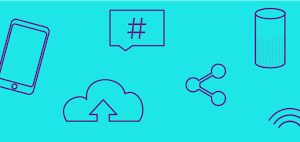With a period of 2 years spent primarily online, the educational system has encountered new problems related to the mental and social health of children. Research shows that the increased use of technology can affect children’s literacy, critical thinking, and ability to communicate directly with people. However, technology was primarily made accessible in order to facilitate the reach of knowledge, thus, as long as it is used as a tool and not a way of living it can help children learn more. This article will refer to the general adverse effects of prolonged use of technology and ways to counter-attack them.
the educational system has encountered new problems related to the mental and social health of children. Research shows that the increased use of technology can affect children’s literacy, critical thinking, and ability to communicate directly with people. However, technology was primarily made accessible in order to facilitate the reach of knowledge, thus, as long as it is used as a tool and not a way of living it can help children learn more. This article will refer to the general adverse effects of prolonged use of technology and ways to counter-attack them.
Recent studies have shown that the extensive use of smartphones has increased the emergence of post-traumatic symptoms in children during the pandemics. It has also aggravated the quality of sleep and memorizing capacity. Besides the use of smartphones, the online school industry has boomed in the past two years offering most children the possibility to study from the comfort of their homes as a viable alternative to the locked-down public school system. So with 39% of the US children’s population between 5 – 8 years using smartphones for an average of 64 minutes daily, according to statistics, the online schooling system has tripled the time children spend in front of a technological device, be it a computer, tablet or smartphone. The negative effects of this increased time of technological usage have been observed by parents and children immediately, translating into problems of concentration, lack of sleep, burn-out, and general stress. Not to mention the impact on the overall physical health of children which has led to obesity, cardiovascular incidences, reduction in muscle tissue, and mobility. This entire situation seems drastic for children’s mental and physical health, but with responsible guidance from parents and involvement in community activities, children can be protected from these negative effects. Below, there is a list of the negative effects which may appear due to prolong use of technology and how to avoid them happening.
Impact of technology on general health
From depression to social anxiety, children can be exposed especially via social media platforms to mental health issues. The general idealist, the picture-perfect image that social media creates can foster, as Facebook reports show, low self-esteem and increased incidences of suicide due to depression and self-worth problems. Besides this, technological gadgets function on AI algorithms that facilitate the access to internet content be it via auto-correct AI’s, auto-filling text, or simplified interface to access gadgets via one click. All these simplifications get the brain accustomed to using only a minimal percentage of its capacity. What are the exact negative effects of technology on children’s mental health and how to avoid them?
Distorted self-image
There is a psycho-analytical theory according to which children of six months reach the mirror stage. In the mirror stage, the child develops self-identity, being capable to recognize themselves in the mirror as an independent person. With the frequent use of technology from an early age, the child may lose the capability of rationalizing themselves as a person with particular traits. For example, young girls that follow celebrities’ accounts on social media may live on with the false impression that if they copy the behavior of those celebrities, they will eventually end up looking like them in the nearby future and living the luxurious life promoted on social media. These young girls may end up dressing up and posing inappropriately for their age; even more, when their bodies will follow the natural cycle of change, they might end up rejecting the natural differences that will appear between the real body and the distorted, unreal image of their body.









